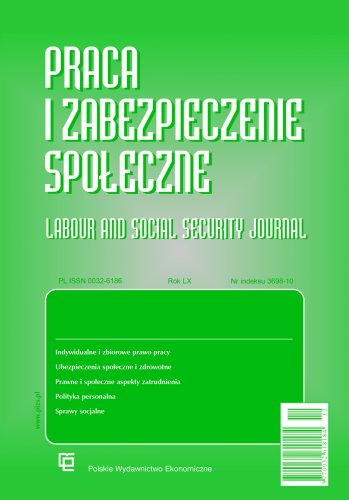Labour and Social Security Journal 05/2022
ISSN: 0032-6186
Pages: 56
Publication date: 2022
Place publication: Warszawa
Binding: paperback
Format: A4
Publication date: 2022
Place publication: Warszawa
Binding: paperback
Format: A4
DOI: 10.33226/0032-6186.2022.5.1
JEL: K31
DOI: 10.33226/0032-6186.2022.5.2
JEL: J62
DOI: 10.33226/0032-6186.2022.5.3
JEL: JEL: J32, J46, J51
DOI: 10.33226/0032-6186.2022.5.4
JEL: K31
DOI: 10.33226/0032-6186.2022.5.5
JEL: K31, K12
DOI: 10.33226/0032-6186.2022.5.6
JEL: K31
DOI: 10.33226/0032-6186.2022.5.7
JEL: K31
DOI: 10.33226/0032-6186.2022.5.8
JEL: K31
| Odbiór osobisty | 0 € |
| Kurier FedEX | 4 € |
| Inpost Paczkomaty | 4 € |
| Kurier Inpost | 4 € |
| Free delivery in Reader's Club | from 46 € |

